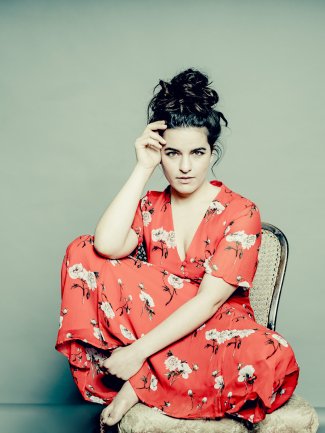Sarah Aristidou
Soprano
“Sarah Aristidou as Zerbinetta is a discovery… A soprano who wins over the audience, and for whom no top note is too high.”
(Der Tagesspiegel, September 2020)

See more
Bachtrack, March 2025
Bachtrack, March 2025
Bachtrack, September 2024
Seen and Heard International, July 2024
ResMusica, July 2024
Opera Online, July 2024
Die Deutsche Buhne, July 2024
Online Merker, January 2024
Bachtrack, November 2023
Bachtrack, May 2023
Süddeutsche Zeitung, November 2022
Münchner Merkur, November 2022
(Christopher Dingle, BBC Music Magazine, January 2022)
(Tim Ashley, Gramophone, January 2022)
(Tim Ashley, Gramophone, January 2022)
(Juergen Kesting, Zeitung, 2022)
(Classical Voice SF, Jason Victor Serinus, 2021)
(Classical Voice SF, Jason Victor Serinus, 2021)
(PAN M 360, Frederic Cardin, 2021)
(PAN M 360, Frederic Cardin, 2021)
(PAN M 360, Frederic Cardin, 2021)
(Knopskaya, Cultuur Pakt, 2021)
(Jacques Bonnaure, Classica, 2021)
(Shirley Apthorp, Financial Times, August 2021)
(Kleinezeitung August 2021)
(Frankfurter Neue Presse, June 2021)
(Opera Canada, June 2021)
(FrankfurterRundschau, June 2021)
(SYBILL MAHLKE, DER TAGESSPIEGEL, SEPTEMBER 2020)
(PHILLIP RICHTER, DAS OPERNMAGAZIN, SEPTEMBER 2020)
(Franziska Stürz, BR Klassik Radio Podcast, October 2019)
(Geoff Brown, The Times, June 2019)
(Hannah Nepilova, Financial Times, June 2019)
(Werner M. Grimmel, Opernwelt, November 2018)
(Opera Magazine, October 2018)
(George Hall, The Stage, August 2018)
(Katharina von Glasenapp, Neue Voralberger Tageszeitung, August 2018)
(Rebecca Schmid, Financial Times, August 2018)
(Mehdi Mahdavi, Opera Magazine, November 2018)












































